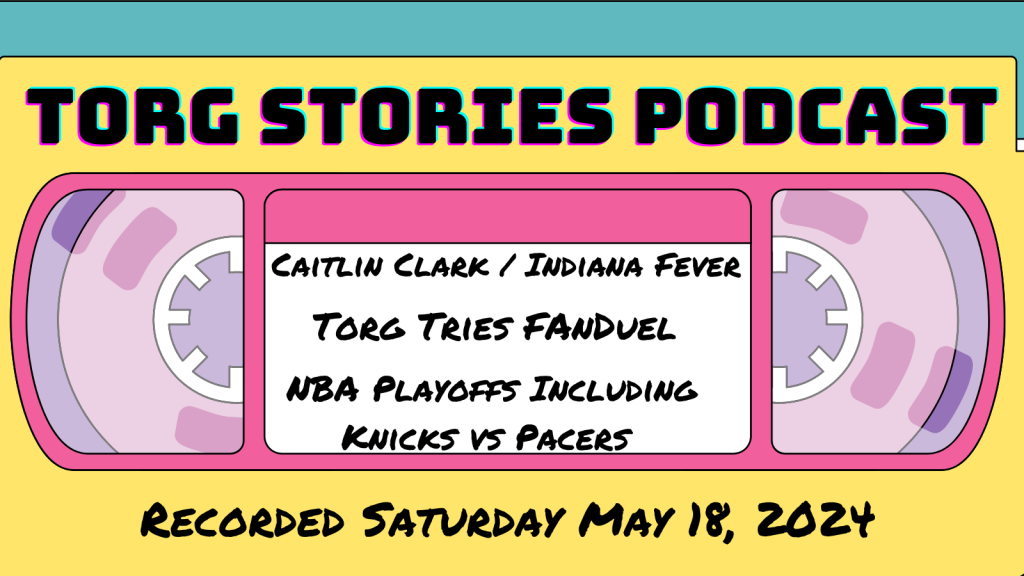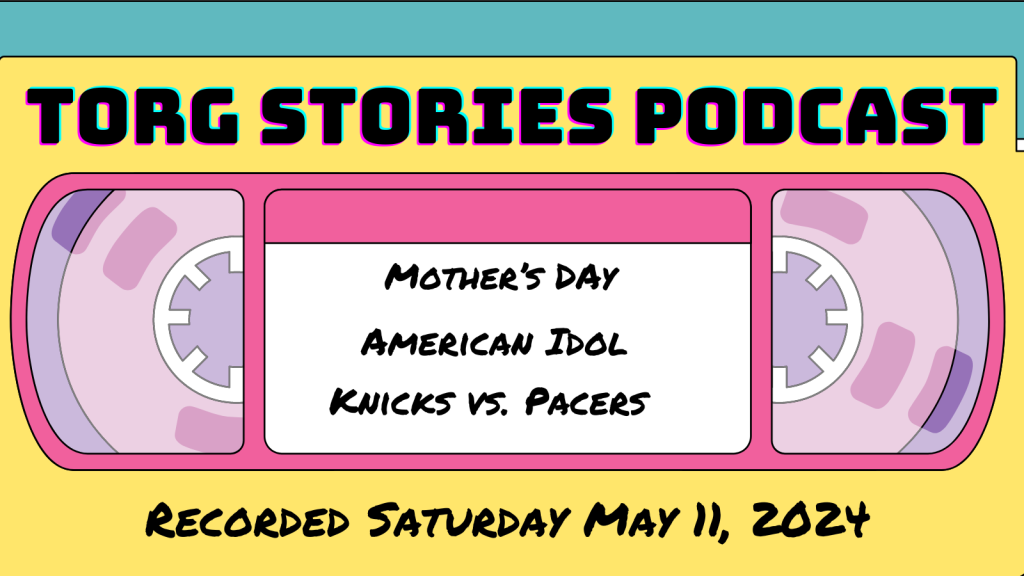Category: Torg Stories podcast
-
Caitlin Clark Gets Started in the WNBA, Torg Tries FanDuel Sports Betting, and the NBA Playoffs

Caitlin Clark gets started in the WNBA, Torg Tries sports gambling on FanDuel and we get ready for some NBA Playoff Game 7s including Pacers vs Knicks.
-
Podcast: Mother’s Day, American Idol, and Pacers versus Knicks

Good to have you with us! We’re going to do a lot more than basketball today. I originally thought of Anne as a regular based on the conversations we’d have in the car when I’d drive down to Charlotte to pick her up at the airport. Anne, do you think we are a fun hang?…
-
Podcast: NBA Round 1 Wraps Up, HS Athletic Banquets, Morel Mushroom Season and Anne Goes for Crew Socks with Shorts

On this week’s Torg Stories Podcast we talk NBA Round 1 Wraps Up, Athletic Banquets, Morel Mushroom Season, and that Anne would wear crew socks with shorts. Thanks for checking out the podcast!
-
Podcast: NBA Round 1 Wraps Up, HS Athletic Banquets, Morel Mushroom Season and Anne Goes for Crew Socks with Shorts

On this week’s Torg Stories Podcast we talk NBA Round 1 Wraps Up, Athletic Banquets, Morel Mushroom Season, and that Anne would wear crew socks with shorts. Recorded May 3, 2024. Thanks for checking out Torg Stories. We appreciate you!
Torg
-
NBA Round 1 Playoffs and First Morel Mushroom Finds of the Season on the Torg Stories Podcast

NBA Playoff Prompts for Podcast Episode Recorded Sunday, April 27, 2024: Discussion questions: Thanks for checking out the page!
